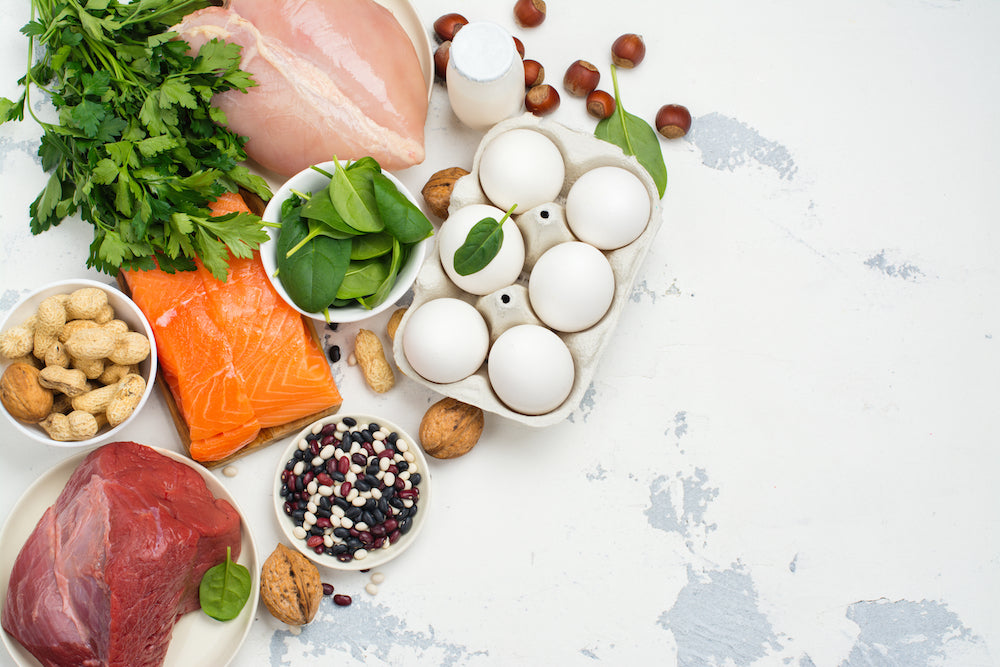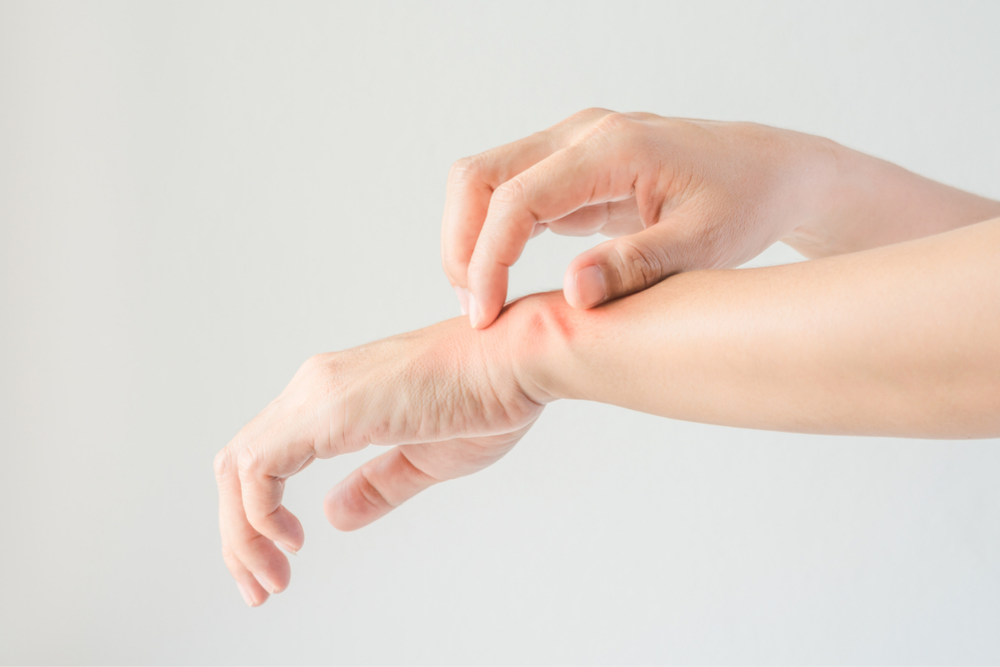It’s no secret that the foods you consume have an effect on your health but did you know that there is also a link between diet and eczema?
If you are experiencing sudden flare-ups and have no idea why, it may be that you are eating the wrong foods! Read on to learn more about how your diet may be affecting your eczema.
Eczema and Diet
Determining which foods are causing your skin condition to flare is not an easy task, however, there are certain foods that tend to be common culprits for triggering eczema. These include dairy, gluten, citrus fruits (such as lemons, grapefruit, and limes), and shellfish. Soy products, nuts, and different spices, such as vanilla, cloves, and cinnamon, are also known to ignite reactions.
Keep in mind that although we condemn these foods for being “common culprits”, everyone is unique and may experience different reactions to these food products.
As always, it’s important to understand your body. If it is indeed a certain food that is triggering your eczema, a reaction will likely occur within 6-24 hours of consuming the food; however, it’s also possible that the reaction may be delayed.
Eczema and Food Allergies
Think you might be suffering from eczema and food allergies?
A food allergy may be linked to eczema reactions in children, typically until they are three or four years old. If you think you or your child may be allergic to a specific food, definitely speak with your doctor, bearing in mind that there is a difference between a food-allergy and a food-sensitivity.
Try an Elimination Diet
If you’re trying to ascertain which foods may be triggering an eczema flare-up, you might consider trying an eczema elimination diet. This eczema diet plan involves completely cutting out the consumption of certain foods, such as eggs or cow’s milk, for a certain period of time (typically one month) and then slowly working these foods back into your diet to see which one caused a reaction.
Making these changes and monitoring the results can help provide valuable insight into whether or not changing your diet can help improve your condition.
Remember, always work with a dietician, nutritionist or physician when undergoing an elimination diet to make sure you or your child is still getting a healthy-well balanced diet. This is especially important if you are cutting out a large food group.
Supplements may be necessary to ensure that your body is still receiving the essential nutrients and vitamins it needs.
Foods that May Help
We’ve spoken about foods that tend to commonly trigger eczema, but what about the foods that you should eat instead? Fortunately, there are plenty of anti-inflammatory foods that are known to reduce eczema symptoms, instead of exacerbate them.
These include foods that are high in quercetin, such as apples, blueberries, kale, broccoli and spinach, since quercetin is a powerful antioxidant and antihistamine.
Foods that are high in probiotics, such as miso soup, sourdough bread, and tempeh are also good for eczema. Lastly, foods such as salmon or herring contain high-levels are omega-3 fatty acids, making them anti-inflammatory and beneficial for those suffering from eczema.
Further Research: Eczema and Diet
The human body is both miraculous and mysterious. As mentioned above, each body is also unique and may react differently when exposed to certain foods.
If you’re interested in learning more about the role your diet plays in affecting your eczema, there are some great books available for you to read. We recommend The Eczema Detox and The Beauty of Eczema.
Have you noticed the ways your diet affects your eczema? We’d love to hear from you on our Facebook page!










